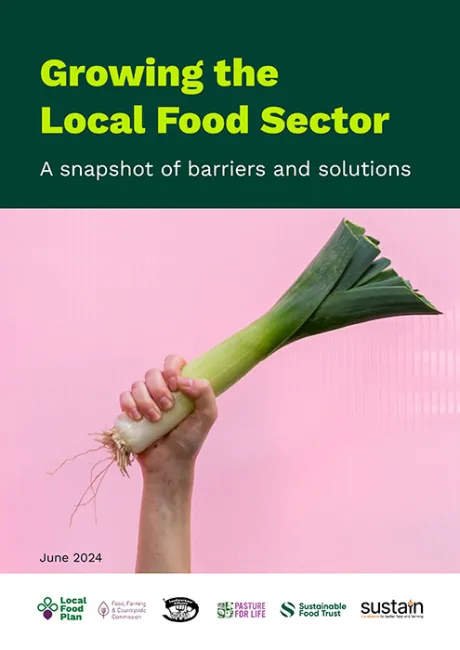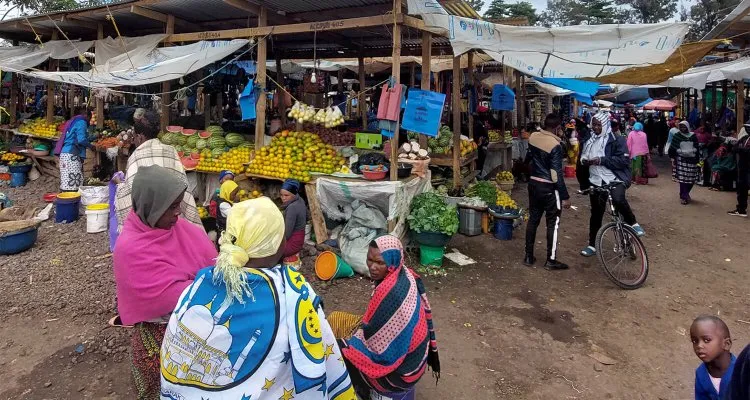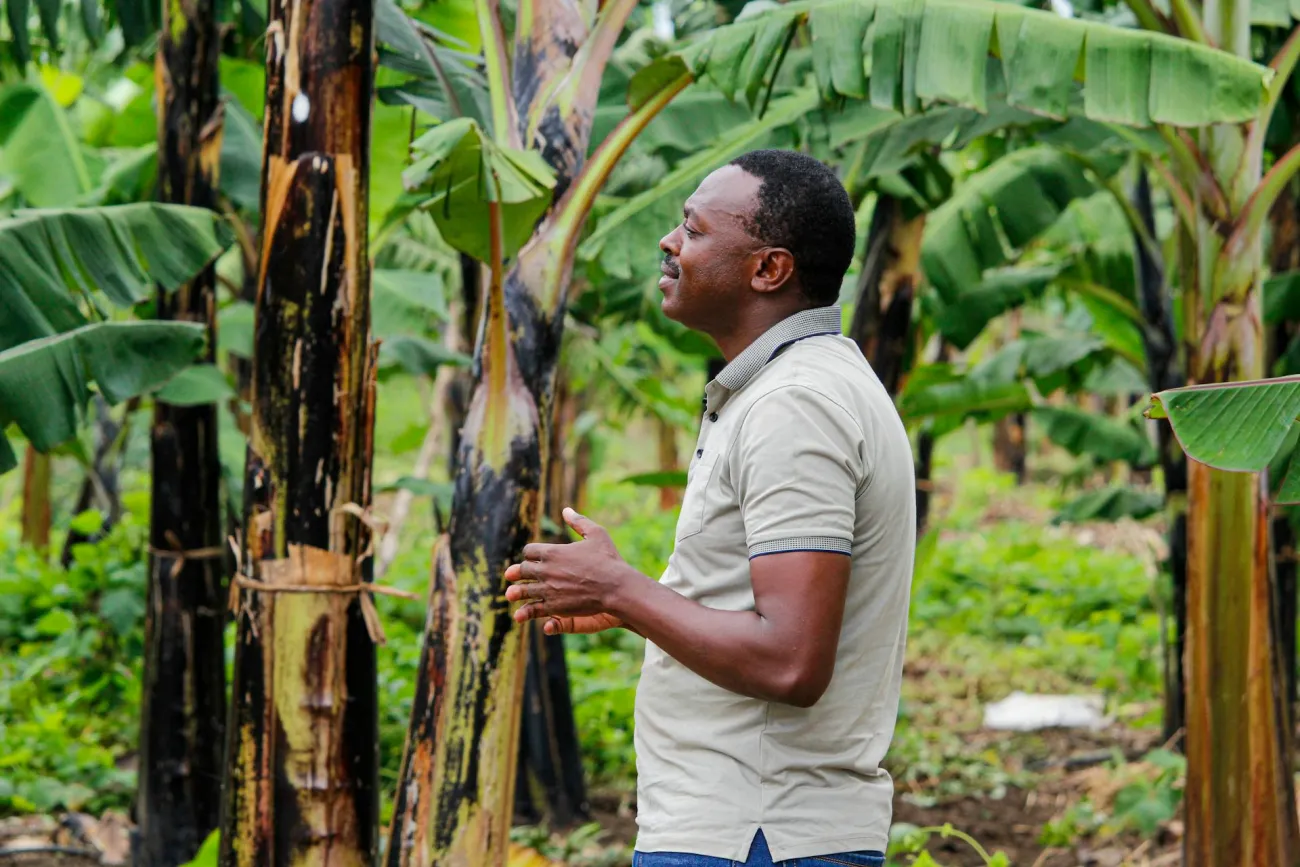This report is part of a collaboration of food system organisations in the UK led by Sustain. It lays out a snapshot of the local food sector from the perspective of those on the frontline such as farmers, wholesalers, retailers and buyers. It details the major barriers preventing the sector's growth as well as some initial potential solutions for local food to thrive. The report is part of the first phase of a larger project to provide recommendations to grow and strengthen local food systems across the four nations of the UK.

Summary
This report is part of an on-going effort to grow and strengthen local food systems in the UK, led by Sustain in collaboration with the Land Workers Alliance, Pasture for Life, Food, Farming and Countryside Commission, and Sustainable Food Trust. This report provides a review of the current state of local food systems. It is the culmination of interviews with people working on the frontline of food provisioning such as farmers, wholesalers, retailers, buyers and other actors across the four nations of the UK. These interviews were cross-checked with a literature review. The authors of the report aimed to understand if there is a collective vision for local food, the barriers preventing the growth of the local food sector and the possible solutions to encourage the sector to grow. This report is the first phase of a broader project called the Local Food Plan which will continue to develop definitions and different types of local food systems in a wider effort to create an action plan for local food systems which incorporates the lived experience of those directly involved in them.
The report defines local food systems as usually having shorter and more farmer-focused supply chains and greater diversity of retail sold through independent and community-owned retailers. They also often provide direct benefits to local people, communities, economies and environments where food is produced, sold and eaten. The report avoids the blanket use of the food miles concept (i which refers to the distance between where food is produced and where it is consumed as an indicator of (un)sustainability) noting that food grown in close proximity to people doesn't always directly benefit those people or the local environment.
The report is the culmination of interviews with local food actors. The authors highlight that whilst no single vision of local food systems emerged, answers from participants generally fell into two categories: those focused on the potential for local food to improve resilience at multiple levels, and those focused on ways of improving quality of life for people in local communities. The topics that emerged within these areas and their relative level of consensus can be seen in Figure 1.
Figure 1: Topics within two broad areas of resilience and quality of life and their relative consensus level within the group of interviewees.
Barriers to growing and strengthening local food systems were relatively consistent across the four nations and agricultural sectors (horticulture, livestock, arable, etc.). Included in these barriers are challenges for local food retailers to compete with larger supermarkets, low pay, long hours and burnout, lack of coordination and expertise for scaling local food systems, lack of customer demand, and several mismatches between what local food suppliers can deliver and what independent retailers and local customers expect such as the kinds of products available, their price, volume and consistency.
Several solutions to these barriers were discussed and will be the basis for further work related to the Local Food Action Plan. These include a need for policy to level the playing field with bigger players like supermarkets, better and streamlined aggregation of admin, logistics, process and marketing, measures to attract and retain new talent, more diverse sources of investment including private investment, and better and more targeted marketing campaigns for local food. There was also an emerging idea the report identified around moving business models away from charities and social-enterprises towards community-owned businesses or local retail franchises which can benefit from economies of scale and access different sources of investment.
The report provides more in-depth analysis of these barriers and the authors will use the solutions as a starting point for further research. The collaborators of the Local Food Plan will seek to create action-oriented guides built from the initial findings of this report. They aim to provide recommendations for policy, initiatives and investment to foster change across the local food sector.
Reference
Sustain, 2024. Growing the local food sector: a snapshot of barriers and solutions. Sustain.
Read more here. See also the TABLE blog A global movement for localised food and farming: The beginning of agriculture in Europe




Comments (0)